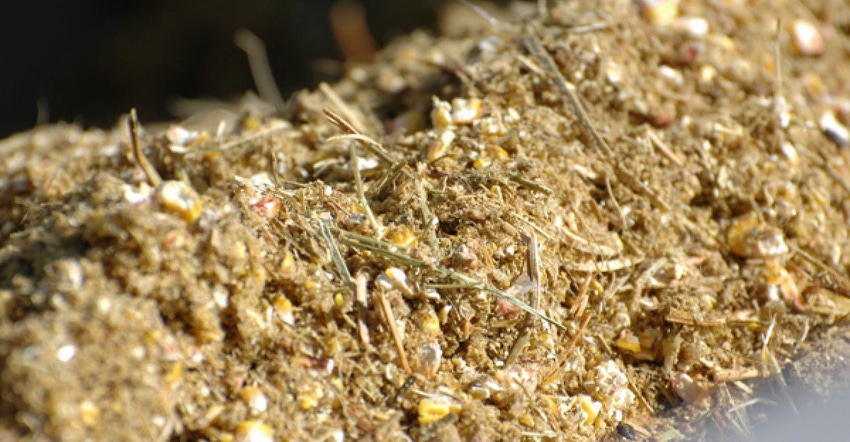New bill in California would ban feeding food byproducts to livestock
One of the best things about cattle — that they are upcyclers! AB 2959 in California would rather see these feedstuffs end up in landfills.
July 26, 2020

In the many conversations surrounding climate change, it seems like cattle take the brunt of the criticism. The “cow farts” myth has permeated every corner of popular culture, and it’s a tough one to buck.
Yet the reality is, and we’ve discussed it many times on the BEEF Daily blog in the last decade, we know three things about cattle that are absolutely true:
Calorie for calorie, it’s hard to beat the complete super food of nutrient-dense beef. Packed with 10 essential nutrients, including zinc, iron, protein and brain-fueling saturated fats, beef not only tastes good, it’s good for you, too.
We use cattle nose-to-tail. Beef cattle provide more than 100 life-enriching byproducts.
With proper grazing management, cattle can upcycle inedible cellulosic material like grass, hay, corn stalks, potato skins, cottonseed hulls, beet pulp and other residuals of crop farming. They convert these feedstuffs into that nutrient-dense beef and life-enriching by-products.
Now, what happens when we can no longer utilize these feedstuffs by incorporating them into healthy rations for cattle?
These feedstuffs end up in landfills. What a tragic waste.
And if some Californians have their way, that’s exactly what the future of the beef industry and the planet holds.
According to Todd Fitchette for Western Farm Press, “Farms that use agricultural byproducts for animal feed, bedding materials, and dust control may lose those through a bill now in the California Senate.
“Assembly Bill 2959 will force the unfranchised hauling of organic byproducts from grocery stores, restaurants, breweries, and wineries to be subjected to the same franchise agreements municipalities now have with select companies. Some fear the bill will go further as unintended consequences are realized,” Fitchette writes.
“Frank Konyn owns a dairy near Escondido, Calif., and uses the feed byproducts from local companies to feed his cows. If approved, the proposed law would ban him from hauling those byproducts to his farm.
“Under current practices, livestock producers pay a nominal fee to haulers to have organic byproducts delivered. These products tend to be less expensive than other feed sources while providing proper nutrition for livestock.”
Frank Mitloehner, air quality specialist at UC-Davis, provides us with some talking points on Twitter about how this change on how California handles food waste, “could have devastating impacts on the animal agricultural industry.”
He explains, “Current California law states that local government agencies have the authority to decide whether the handling of solid waste is subject to a franchise municipality agreement. But there’s an exception: BYPRODUCTS from food and beverage processing.
“SB 1383 (signed into law in 2016) mandates a 40% reduction of methane below 2013 levels by 2030. This includes methane from both landfills and livestock.
“To recap, California has a law stating methane emissions in landfills and from livestock must be reduced, and another stating local governments are responsible for managing organic waste unless the waste is a byproduct from food, beverage, manufacturing and processing.
“Here’s where AB 2959 comes in: The bill would allow local governments to take control of byproducts from restaurants, grocery stores and other retail businesses. Currently, many of these businesses sell their byproducts to haulers who then sell the material to farmers for feed use.
“Why this matters: The bill could greatly disrupt the role dairy farmers and beef producers play in keeping solid organic waste from heading into landfills, thus preventing the waste from contributing to more methane emissions in landfills.”
Note that according to the EPA, landfills are the third largest source of human-related methane emissions, accounting for about 15% of all U.S. methane emissions in 2018, added Mitloehner.
He said, “In California, about 18% of materials that go into landfills is wasted food. In the U.S., about 30-40% of the food supply is wasted. Let those numbers sink in. It’s truly unacceptable.”
This bill defies science. It is an egregious overreach and an overt assault against small business owners, animal agricultural producers and even consumers who will suffer the negative planetary impacts of this bill, as well as the secondary consequence of making food more expensive in this country.
You see, cattle are the solution. Ruminant animals work in perfect concert with nature. According to a report titled, ‘Livestock: On Our Plates or Eating at Our Table? A New Analysis of the Feed/Food Debate,” by Anne Mottet, “86% of the global livestock intake is made of materials that are inedible by humans.”
Stand up. Speak out. Share the truth of beef cattle as a critical component of healthy people and a healthy planet. The time is now for us to push back against these threats to our businesses and to our dinner plates.
The opinions of Amanda Radke are not necessarily those of beefmagazine.com or Farm Progress.
About the Author(s)
You May Also Like





